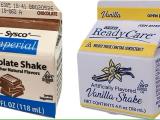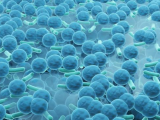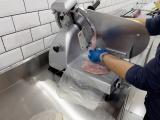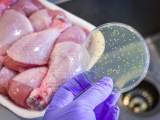After inspections found multiple sanitary problems at a cheese factory linked to a multistate Listeria outbreak, the US Food and Drug Administration (FDA) yesterday barred the facility from producing its products, only the second time it has done so with its new food safety authority.
The agency suspended the food facility registration of Roos Foods, Inc., of Kenton, Del., based on its assessment that food made, processed, and packed at that location has the reasonable probability of causing illness or deaths to consumers. Food companies need the registration to make and sell their products.
Yesterday's action was part of an investigation into a Listeria monocytogenes outbreak linked to cheese products made by Roos Foods that sickened eight people, killing one of them. Five of the infections were related to pregnancy—two mother-newborn pairs, and one newborn.
All of the patients are Hispanic, and several of the products recalled by the company were brands and products aimed at Hispanic customers, such as semi-soft cheeses and certain types of sour cream and butter.
The patient who died was from California, and the other seven are from Maryland. Interviews with survivors found that all had eaten soft or semi-soft Hispanic-style cheese and that all had shopped at different locations of the same Hispanic-style local food store chain. Tests by Virginia health officials on cheese from the chain found Listeria in a sample from Roos Foods' fresh cheese curd, and the strain was indistinguishable from the strain isolated from eight of the patients.
Outbreak announced last month
The US Centers for Disease Control and Prevention (CDC) announced the outbreak on Feb 21, and the company announced its first recall 2 days later, but the patients' illnesses were diagnosed from Aug 1 through Nov 27 of last year. Over the course of the investigation Roos Foods expanded the recall twice to include a wider scope of its products.
On Mar 7 federal health officials announced that whole-genome sequencing of the Listeria strain isolated from Roos Foods cheese products were closely related to those isolated from patients, according to a CDC statement.
The testing was part of a Listeria sequencing project conducted by the CDC, FDA, US Department of Agriculture, and other federal, state, and international partners. The project is designed to allow investigators to rapidly distinguish between isolates. Also, compared with pulsed-field gel electrophoresis, whole-genome sequencing allows health officials to more clearly distinguish between cases and foods that are likely part of the outbreak and those that are not, the CDC said.
New FSMA-related powers
Authority to pull a company's food facility registration took effect in July 2011 as part of the reforms included in the FDA Food Safety Modernization Act (FSMA). Signed into law in January 2011, the FSMA is thought to be the most sweeping element of food safety reform in nearly a century.
The first time the FDA used its new authority to halt food production was in November 2012, when it barred Sunland Inc. from selling peanut products in the wake of a Salmonella Bredeney outbreak that sickened at least 42 people in 20 states.
In a statement yesterday, the FDA said its inspectors were at the Roos Foods facility from Feb 18 to Mar 4 and found insanitary conditions such as a leaky roof with water raining down into the cheese processing room and onto the processing equipment and storage tanks.
Officials also found standing water on the cheese curd processing room floor near the cheese vats and in storage rooms. Other problems included rusty roof and ceiling supports that couldn't be effectively cleaned, food residue on equipment after it had been cleaned, and openings to milk storage tanks and transfer pipes that weren't capped to prevent contamination.
The FDA said it will reinstate the company's food facility registration after it determines that food made there no longer has reasonable probability of causing health problems.
See also:
Mar 11 FDA statement
Mar 12 CDC statement
Nov 27, 2012, CIDRAP News scan "FDA bars operations at tainted peanut butter plant"




















